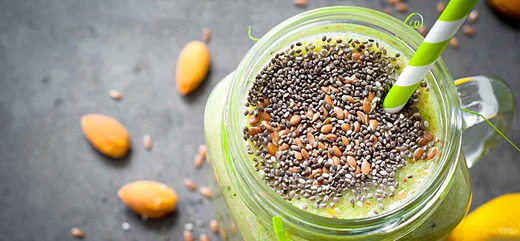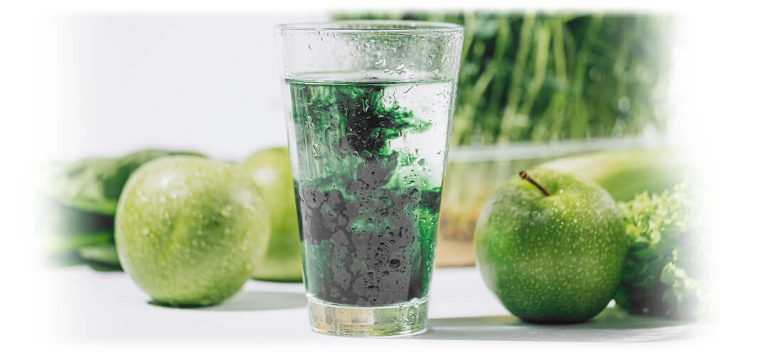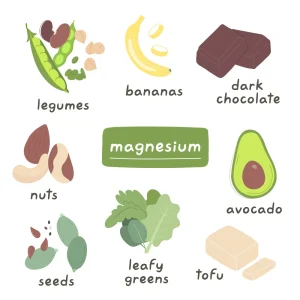Breakfast smoothies have many good things going for them. They taste great, are packed with nutrients and are quick and easy to make. But, are breakfast smoothies good for weight loss?
The answer to this question is simple – breakfast smoothies can be good for weight loss, but only if they are part of a balanced diet and healthy lifestyle.
The keys to maintaining a healthy weight are diet and exercise. Simply put, if you eat lots of fresh fruit and vegetables, lean meats and whole foods, and combine this with regular exercise, this will help you achieve your weight management goals – whether that’s losing weight or toning up.
If, on the other hand, you eat lots of junk food and don’t do much physical activity, then while having a smoothie at breakfast might help you get your daily five-a-day intake, it’s unlikely to have any long-term impact on your waistline.
If weight loss is your goal, you should focus on what you are eating, and what lifestyle choices you need to make to maintain a healthy weight.
It could be that you need to cut down on alcohol, takeaways and sweet treats and replace them with healthy snacks. If this is a case, breakfast smoothies would be a good choice, as they are usually packed with fresh fruit and veg so are a great source of natural vitamins and minerals, which may be missing from other parts of your diet.
You can also bulk your breakfast smoothies up with protein powders and fibre supplements, to help you feel fuller for longer and build muscle after exercising.
So, are breakfast smoothies good for weight loss?
They can be, but they are just one part of the puzzle. To maintain a healthy weight, you also need to eat healthily, get plenty of exercise, stay hydrated, rest and recover properly and avoid stress.
How much smoothie should I drink for breakfast?
There are no real set amounts for how much smoothie you should drink for breakfast; it will all depend on what your lifestyle goals are and what the rest of your diet looks like. As we said earlier if weight management is your goal, but the only thing you are doing is swapping your cereal for a breakfast smoothie, it’s unlikely to have a significant impact. If, on the other hand, you are giving your diet a complete overhaul and upping your physical activity too, then breakfast smoothies can help.
When it comes to how much smoothie you should drink for breakfast, that will depend upon how many calories are in each serving. The NHS Eat Well guide recommends the average person should aim for around 400 calories for breakfast. That includes everything you consume, so if you have milk or sugar in your tea or coffee, a glass of fruit juice or anything else alongside your breakfast smoothie, the calories in these should also be counted. It’s also important to ensure it doesn’t leave you still feeling hungry. Because a smoothie is a drink, it can feel less filling than, for example, a bowl of porridge or some beans on wholemeal toast. It’s no good having a healthy smoothie for breakfast if it’s going to leave you reaching for the biscuit barrel half-an-hour later.
If this is an issue, bulking your breakfast smoothie up with natural yoghurt, milk or protein powder or additional fibre can help make it more substantial, so you don’t feel hungry later. Avocados can also help bulk-up a smoothie, but use them sparingly. They are high in unsaturated fat which, although healthy, is still fat and can contribute to weight gain if you eat too much.
Are breakfast smoothies good for you?
Some smoothies, particularly the ones you make at home, are healthy because they are high in vitamins, minerals and other beneficial nutrients. Provided you follow a few simple rules, then breakfast smoothies can be good for you.
Don’t overdo it – keep in mind that magic 400 calories figure for breakfast and don’t overshoot it. Balance out the sugar content of all that fruit with a few different veggies – dark leafy greens are best, but carrots and broccoli can also add extra flavour and texture. Use skimmed milk and fat-free yoghurt instead of their full-fat alternatives.
If you are lactose intolerant or follow a vegetarian or vegan lifestyle, use your favourite dairy substitutes like oat, soy or almond milk.
Finally, remember that breakfast smoothies aren’t the only key to weight loss.
Maintaining a healthy weight is down to a balanced diet and a healthy lifestyle, so making better choices overall will help you achieve your goals.






